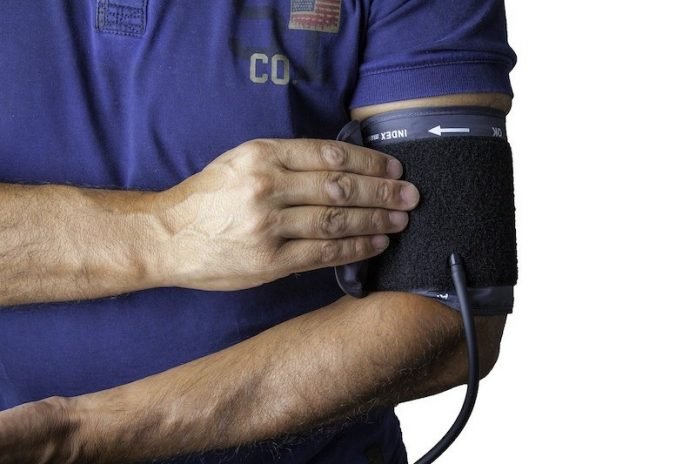
In a study published in Hypertension Queen’s University researchers found flavonoid-rich foods, including berries, apples, pears and wine, appear to have a positive effect on blood pressure levels.
Flavonoids are compounds found naturally in fruits, vegetables and plant-based foods such as tea, chocolate and wine. Flavonoids are broken down by the body’s gut microbiome—the bacteria found in the digestive tract.
In the study, the team examined the link between eating flavonoid-rich foods with blood pressure and gut microbiome diversity. A group of 904 adults between the ages of 25 and 82 was recruited.
The team found people who had the highest intake of flavonoid-rich foods had lower systolic blood pressure levels, as well as greater diversity in their gut microbiome.
Eating 1.6 servings of berries per day (one serving equals 80 grams, or 1 cup) was linked to an average reduction in systolic blood pressure levels of 4.1 mm Hg, and about 12% of the association was explained by gut microbiome.
Drinking 2.8 glasses (125 ml of wine per glass) of red wine a week was linked to an average of 3.7 mm Hg lower systolic blood pressure level, of which 15% could be explained by the gut microbiome.
The findings suggest these blood-pressure-lowering effects are achievable with simple changes to the daily diet.
In another study published in the Journal of Nutrition, Tufts researchers found middle- to older-aged adults who ate at least three servings of whole grains daily had smaller increases in waist size, blood pressure, and blood sugar levels.
They examined how whole- and refined-grain intake over time impacted five risk factors of heart disease: Waist size, blood pressure, blood sugar, triglyceride, and HDL (“good”) cholesterol.
The researchers focused on health outcomes linked to the whole- and refined-grain consumption over 18 years in 3,100 participants.
They found that waist size increased by an average of over 1 inch in the low intake participants, versus about ½ inch in the high intake participants.
The average increases in blood sugar levels and systolic blood pressure were greater in low intake participants compared to high intake participants.
The researchers also found lower refined-grain intake led to a lower average increase in waist size and a greater mean decline in triglyceride levels for each four-year period.
In a third study published in the International Dairy Journal, Maine researchers found yogurt consumption can help lower blood pressure in older adults with elevated levels.
In the study, they examined the link between yogurt consumption and blood pressure among 915 older adults with and without high blood pressure.
The team found strong reductions in systolic blood pressure among those with high blood pressure who consumed yogurt.
There was no improvement linked to eating yogurt in individuals with normal blood pressure.
If you care about blood pressure, please read studies about easy daily exercise that could help lower high blood pressure, and common gum disease that may double high blood pressure.
For more information about nutrition, please see recent studies about healthy diet that may be bad to your bones, and results showing this dieting method may improve long-term memory function.
Copyright © 2022 Knowridge Science Report. All rights reserved.



